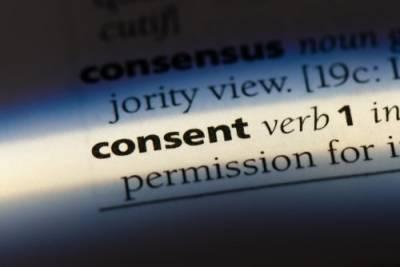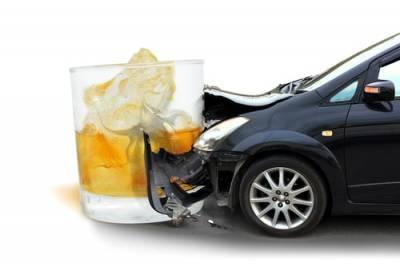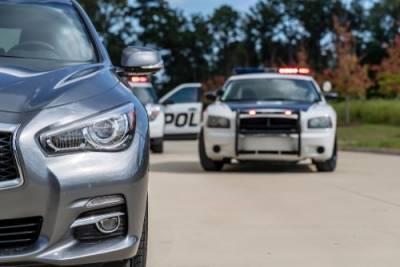Recent Blog Posts
Understanding Consent and Sexual Assault Crimes in Texas
 In 2017, the #MeToo movement exploded on social media, encouraging those who have experienced sexual assault to share their stories. In the years since, the #MeToo movement has sparked a wave of change in many states as to how they define, charge and prosecute sexual assault offenses. In many cases, consent has been a hotly debated issue in sexual assault cases. Most states -- Texas included -- have various laws and stipulations pertaining to what consent means, who can give it, and whether or not it is a defense against sexual assault charges.
In 2017, the #MeToo movement exploded on social media, encouraging those who have experienced sexual assault to share their stories. In the years since, the #MeToo movement has sparked a wave of change in many states as to how they define, charge and prosecute sexual assault offenses. In many cases, consent has been a hotly debated issue in sexual assault cases. Most states -- Texas included -- have various laws and stipulations pertaining to what consent means, who can give it, and whether or not it is a defense against sexual assault charges.
What is Consent in Texas?
According to Texas law, sexual assault occurs when a person intentionally and/or knowingly performs a sex act or causes another person to perform a sex act on a person who does not give their consent. Because consent is such a crucial part of sexual assault cases, it is important to understand what consent means. Texas law states that consent is not given if:
What Are the Consequences of a Boating While Intoxicated (BWI) Charge in Texas?
 Now that we are easing into the springtime and soon into summer, more people will be out enjoying the warm weather. Many Texans enjoy spending time out on the water on their boats or other watercraft when the weather is nice, but what starts as a good time can turn into a serious problem if you are drinking while you are operating your boat. Just like driving while intoxicated (DWI), boating while intoxicated, also referred to as a BWI, can carry serious implications. Anyone facing a BWI charge in Texas should consult with a knowledgeable lawyer to discuss their options.
Now that we are easing into the springtime and soon into summer, more people will be out enjoying the warm weather. Many Texans enjoy spending time out on the water on their boats or other watercraft when the weather is nice, but what starts as a good time can turn into a serious problem if you are drinking while you are operating your boat. Just like driving while intoxicated (DWI), boating while intoxicated, also referred to as a BWI, can carry serious implications. Anyone facing a BWI charge in Texas should consult with a knowledgeable lawyer to discuss their options.
What Constitutes a BWI Charge?
Everyone has heard at some point that the legal limit for the amount of alcohol in your blood is 0.08 percent. If you have a blood-alcohol concentration (BAC) above this limit, you are considered to be intoxicated. The same limit also applies to those who are operating a boat. You will be considered to be boating under the influence if you have a BAC of 0.08 percent or higher, or if you have lost your normal mental and/or physical capabilities because of an intoxicating substance.
Everything You Need to Know About the Administrative License Revocation (ALR) Process in Texas DWI Cases
 In recent years, more focus has been placed on catching those who choose to drive while intoxicated (DWI) and preventing it from happening in the first place. In Texas, one of the programs that has been implemented as a deterrent for people to avoid drinking and driving is the Administrative License Revocation (ALR) program. Like in most other states, you can lose your driver’s license in Texas through an administrative process if you are arrested for DWI under certain circumstances. If you are facing administrative penalties relating to a DWI, sometimes known in other jurisdictions as a DUI, a DWI defense attorney can help you understand your options.
In recent years, more focus has been placed on catching those who choose to drive while intoxicated (DWI) and preventing it from happening in the first place. In Texas, one of the programs that has been implemented as a deterrent for people to avoid drinking and driving is the Administrative License Revocation (ALR) program. Like in most other states, you can lose your driver’s license in Texas through an administrative process if you are arrested for DWI under certain circumstances. If you are facing administrative penalties relating to a DWI, sometimes known in other jurisdictions as a DUI, a DWI defense attorney can help you understand your options.
The ALR Process and Implied Consent
If a police officer suspects that you have been drinking and driving, he or she will likely pull you over and request that you perform a series of field sobriety tests. If one of these tests involves a preliminary chemical breath test, you have the right to refuse the test without facing consequences. However, once you have been arrested, you are subject to implied consent. This means you must submit to chemical testing or face the consequences set forth by the state of Texas, which is a driver’s license suspension. Since you have not yet been convicted of DWI, this is not a criminal charge, but rather an administrative process that is separate from the criminal element of your case.
What Are the Different Types of Mortgage Fraud?
 Whereas they were once settled in civil courts, these days white-collar crimes have become increasingly more common as many law enforcement agencies, including the FBI and the CIA, as well as the general public, seek justice for higher-brow financial crimes in which the accused might be bilking hundreds of thousands of dollars or more from their clients or other victims. In the case of mortgage fraud, both white-collar criminals and the average person might be accused of it.
Whereas they were once settled in civil courts, these days white-collar crimes have become increasingly more common as many law enforcement agencies, including the FBI and the CIA, as well as the general public, seek justice for higher-brow financial crimes in which the accused might be bilking hundreds of thousands of dollars or more from their clients or other victims. In the case of mortgage fraud, both white-collar criminals and the average person might be accused of it.
Mortgage Fraud Defined
Mortgage fraud, a type of financial institution fraud (FIF), is defined by the Federal Bureau of Investigation (FBI) as: “Some type of material misstatement, misrepresentation, or omission in relation to a mortgage loan that is then relied upon by a lender.” This deceptive practice of mortgage fraud then causes the bank to make a decision about the loan that could be in the favor of the offender even though he/she used deceptive means to influence such a decision.
Substances Other Than Alcohol That Lead to DWI Arrests
 To many people, the assumption has always been that being pulled over for driving while intoxicated (DWI) was almost always the result of driving after drinking one-too-many alcoholic beverages. While that might be the most common reason for being charged and even convicted for DWI, the truth is that there are plenty of other legitimate reasons you might be pulled over for DWI and yet not have to deal with a breathalyzer or another blood alcohol concentration (BAC) level test, among other things. That is because the most critical element of a DWI arrest is proof of impairment, and impairment is not just caused by alcohol. Here are some other reasons you might be pulled over for DWI due to impairment.
To many people, the assumption has always been that being pulled over for driving while intoxicated (DWI) was almost always the result of driving after drinking one-too-many alcoholic beverages. While that might be the most common reason for being charged and even convicted for DWI, the truth is that there are plenty of other legitimate reasons you might be pulled over for DWI and yet not have to deal with a breathalyzer or another blood alcohol concentration (BAC) level test, among other things. That is because the most critical element of a DWI arrest is proof of impairment, and impairment is not just caused by alcohol. Here are some other reasons you might be pulled over for DWI due to impairment.
All the Ways You Might Be Impaired While Driving
A recent NHTSA report suggests that nearly 20 percent of all drivers might be impaired by any number of substances at any given time. For example, in addition to alcohol, you might experience some type of impairment if you are using any one or a mix of the following substances:
What Does “Failure to Stop and Render Aid” Mean in Texas?
 With regards to criminal law, a basic fact is that misdemeanors are not as serious as felonies. That is why a crime such as failure to stop and render aid (FSRA) can be considered a felony and has even been elevated to a more serious offense than it used to be within the last decade. If you were to review this charge by its wording alone, you might assume it is merely about being a good Samaritan. However, it is actually much more serious than that. Essentially, “failure to stop and render aid” means you did not follow the law in how you dealt with what seems to be a hit-and-run accident, be it one that involved people, damage to other cars, or damage to property. Here are further details about the definition of FSRA and its associated penalties when someone is injured or killed.
With regards to criminal law, a basic fact is that misdemeanors are not as serious as felonies. That is why a crime such as failure to stop and render aid (FSRA) can be considered a felony and has even been elevated to a more serious offense than it used to be within the last decade. If you were to review this charge by its wording alone, you might assume it is merely about being a good Samaritan. However, it is actually much more serious than that. Essentially, “failure to stop and render aid” means you did not follow the law in how you dealt with what seems to be a hit-and-run accident, be it one that involved people, damage to other cars, or damage to property. Here are further details about the definition of FSRA and its associated penalties when someone is injured or killed.
FSRA Defined
Regarding the most serious of the duties following an accident, the FSRA law, or those duties after a serious accident involving personal injury or death as noted in Sec. 550.021 of the Texas State Transportation Code, people must meet all of the following requirements if they are to be absolved of any FSRA allegations:
What Are the Differences Between Federal and State Drug Charges?
 In Texas, for the most part, state drug charges signify severe penalties, more so than many other states. In some cases, the penalties can be steeper than those for federal drug charges. Since drug charges are common in criminal defense—and you never know when you or someone you care about might need to hire a criminal defense attorney to assist with such charges, it is worth knowing the differences between the state drug charges in Texas and federal drug charges. Essentially, there are three main differences between state drug charges and federal drug charges:
In Texas, for the most part, state drug charges signify severe penalties, more so than many other states. In some cases, the penalties can be steeper than those for federal drug charges. Since drug charges are common in criminal defense—and you never know when you or someone you care about might need to hire a criminal defense attorney to assist with such charges, it is worth knowing the differences between the state drug charges in Texas and federal drug charges. Essentially, there are three main differences between state drug charges and federal drug charges:
- Drug Classifications
- Methods of Prosecution
- Penalties/Punishments for Convictions
Drug Classifications and Their Associated Penalties
Texas law categorizes drugs differently than the federal government does. Inherent in both their classifications and definitions of drug types are the associated penalties and punishments. With regards to classifications, the federal government organizes drugs according to “schedule” types:
Motions to Revoke Probation Can Lead to Complex Situations in Texas
 When you are on probation for a crime, especially with time already served, you will want to do anything to avoid any additional penalties or jail time. Despite this fact, no matter your most valiant efforts, you might end up finding yourself on the other end of a motion to revoke probation (MTR) issued by your probation officer. This is part of the reason why you must always be on such good behavior if on probation. Yet, if you deviate even to the slightest degree and do something illegal, you could be faced with an MTR.
When you are on probation for a crime, especially with time already served, you will want to do anything to avoid any additional penalties or jail time. Despite this fact, no matter your most valiant efforts, you might end up finding yourself on the other end of a motion to revoke probation (MTR) issued by your probation officer. This is part of the reason why you must always be on such good behavior if on probation. Yet, if you deviate even to the slightest degree and do something illegal, you could be faced with an MTR.
A Brief Overview of Motions to Revoke Probations in Texas
A motion to revoke probation will generally be filed when you commit any crime under the supervision of a probation officer. In general, the probation supervisor makes the decision to file this motion based on behavior the officers observe themselves or note from others, be it police or other witnesses to the crime(s). It is easy to forget that even though you are on probation and in the real world, you are still not entirely a free individual as your behavior seems like it is held to a higher standard than most average civilians, especially since your behaviors and actions are being documented by a probation supervisor often.
What You Need to Know About Intoxication Manslaughter in Texas
 While DWI (driving while intoxicated) itself is a very serious offense, the most serious offense related to such a crime is intoxication manslaughter. This is no coincidence—the whole purpose of law enforcement serving and protecting other civilian drivers from those drivers who are intoxicated is to maintain their safety from serious injury or death. When an intoxicated driver kills someone by accident or mistake, the offense is referred to as intoxication manslaughter, and its penalties are very serious indeed.
While DWI (driving while intoxicated) itself is a very serious offense, the most serious offense related to such a crime is intoxication manslaughter. This is no coincidence—the whole purpose of law enforcement serving and protecting other civilian drivers from those drivers who are intoxicated is to maintain their safety from serious injury or death. When an intoxicated driver kills someone by accident or mistake, the offense is referred to as intoxication manslaughter, and its penalties are very serious indeed.
What Constitutes Intoxication Manslaughter in Texas?
In the state of Texas, the law defines “intoxication manslaughter” as follows:
“An individual is committing the offense of intoxication manslaughter if that person operates a motor vehicle in a public space, an aircraft, a watercraft, an amusement ride, or assembles an amusement ride while being intoxicated with a blood alcohol content (BAC) greater than or equal to .08% in which the aforementioned intoxication causes the death of another by mistake or accident.”
What Is a “Sobering Center” and How Can It Prevent DWI Charges in Texas?
 It is late. You are drunk and far away from home. You know driving at this stage of drunkenness would be illegal, but you also cannot afford the money necessary to get all the way back home from where you are. What are your options? Call a friend or family member? “Sleep it off” on a public bench and risk being arrested? Risk driving home anyway and then eventually getting charged with DWI (driving while intoxicated) or worse depending on what happens while you are driving drunk? There is another option all across Texas, including the “Sobering Unit” at Roberto L. Jimenez M.D. Restoration Center (“Drunk Tank” for “down-and-outs”) in San Antonio. These sobering centers offer a compelling alternative for both law enforcement and drunk civilians, including those contemplating driving home drunk. Here is why.
It is late. You are drunk and far away from home. You know driving at this stage of drunkenness would be illegal, but you also cannot afford the money necessary to get all the way back home from where you are. What are your options? Call a friend or family member? “Sleep it off” on a public bench and risk being arrested? Risk driving home anyway and then eventually getting charged with DWI (driving while intoxicated) or worse depending on what happens while you are driving drunk? There is another option all across Texas, including the “Sobering Unit” at Roberto L. Jimenez M.D. Restoration Center (“Drunk Tank” for “down-and-outs”) in San Antonio. These sobering centers offer a compelling alternative for both law enforcement and drunk civilians, including those contemplating driving home drunk. Here is why.
“Sobering Center” Defined
Sobering centers are seen as intermediaries between actual arrests with legal consequences for drunkenness that disrupts the peace and expensive hospital visits for excessive drinking. In short, these sobering centers are short-term recovery facilities where drunk or otherwise inebriated civilians can “sleep it off” and get a chance to regain their sobriety less the headaches of the morning after with the option to continue with recovery programs and other treatment options.





